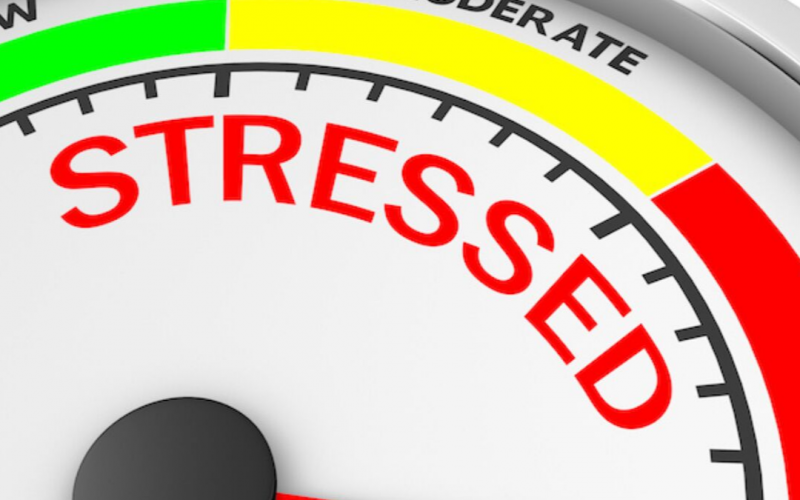Stress is a part of everyday life; it can affect our body, our thoughts, feelings, and our behaviour. It’s impossible to avoid some significant life events, bereavement, divorce, family illness, redundancy even parenthood. Stress can induce a flight or fight response in the body, producing hormones to increase heart rate, make us breathe faster and makes muscle tense and stronger.
We have all experienced those everyday events that initiate a short-term stress response; a fire engine with its blues and twos on (blue flashing lights and two-tone siren) whizzing past, or missing a train.
Relationship problems, ongoing family illness or one’s own health problems can result in long-term stress. It is this long-term stress which can be detrimental to our health. It raises blood pressure, weakens the immune system and can lead to symptoms varying from headaches to IBS, weight and mental health challenges.
The stress response
When our body perceive a threat (real or imagined), the body needs to focus on responding to the threat with a fight-or-flight response, whether it’s long or short term stress. Adrenaline is the appropriate short-term response by the body. The difficulty is that for many people perceived the threat for a lot more extended period and continued to a chronically stressed state. Stress manifests itself differently in each individual; it goes without saying that it can be a challenge to reduce the amount of pressure in our lives, as sometimes it is beyond our control.
During stressful encounters, we may experience a variety of effects such as increased heart and breathing rate, dry mouth, increased muscle tone and sweating. Interestingly, although we tend to believe that all stress is bad, it does have some benefits: for example, it allows us to focus and pay attention to important events. Prolonged, unresolved, ongoing or severe stressors is described as chronic stress.
Adrenaline is the hormone that gets released from your adrenal glands which are small glands sitting on top of the kidneys when in fight or flight’ mode. It is essential for survival. Interesting, that might be for good reasons, you’re about to do exhilarating like a parachute jump. One of the effects of adrenaline is that it suppresses the immune system which means long-term stress can lead to ‘burn out’ or adrenal fatigue.
Cortisol is one of the main hormones released during stress; it depresses the immune response and inflammation, lowering our ability fit to infection and resist disease. Which may be the cause of stress-related illness such as stomach ulcers, depression, IBS (irritable bowel syndrome), hypertension and may conditions such as asthma worse.
Common symptoms associated with stress
- Aches and pain, back, neck or shoulders
- Jaw pain
- Headaches
- Stomach ache
- Digestive symptoms such as IBS
- Report an inability to relax
- A vicious cycle is often the consequence; These symptoms can cause people to feel considerably unwell, which exacerbates the stress response, and around it goes
Other symptoms include
- Weight gain especially around the waist
- Feel low, down or depressed
A vicious cycle is often the consequence; These symptoms can cause people to feel considerably unwell, which exacerbates the stress response, and around it goes.
Next time;
Stress-related problems in more detail
Stress management
How Osteopathic treatment can help
Please note: This is for guidance only, it should not be considered a substitute for medical advice, diagnosis or treatment given in person by an appropriately trained health professional.








